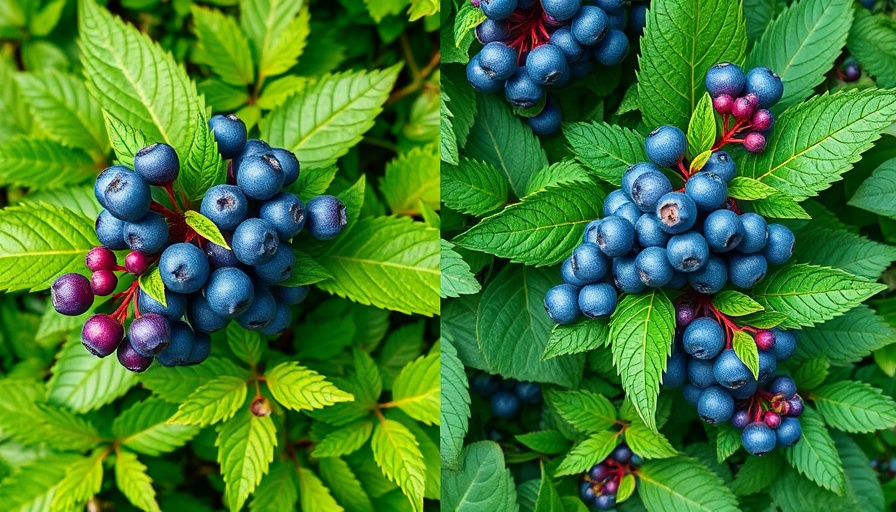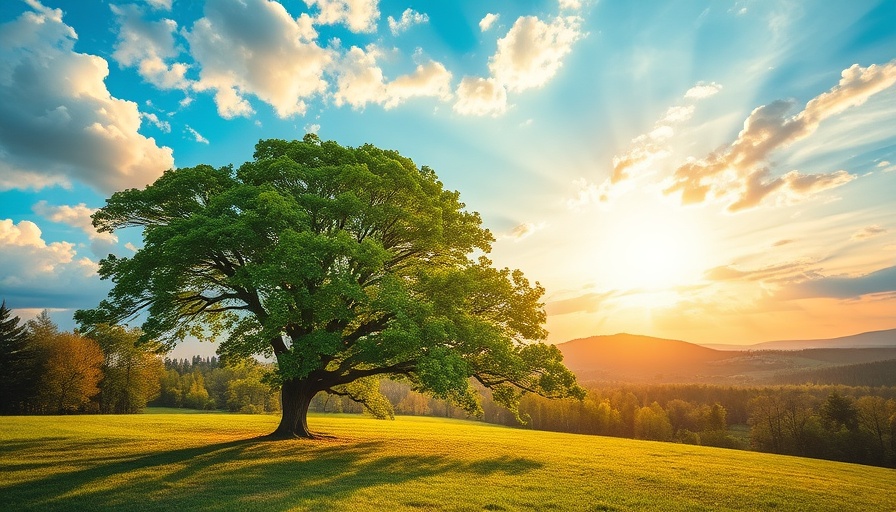
Why Choose Noninvasive Plants for Your Garden?
When planning your garden, the choice of plants can significantly impact local ecosystems. Many traditional options, such as privet hedges, while popular for their dense foliage and privacy, pose significant risks to native biodiversity. Noninvasive alternatives not only protect the environment but offer similar aesthetic and functional benefits.
Choosing the Right Noninvasive Alternatives
Home gardening enthusiasts seeking noninvasive hedges have a plethora of beautiful choices. For instance, consider native shrubs such as Aronia or Inkberry Holly. These plants not only add visual interest but also provide essential habitats for local wildlife. Incorporating perennials like panicle hydrangea or common elderberry can create vibrant hedges, decked out in seasonal colors, without threatening neighboring ecosystems.
Benefits of Using Native Plants
One of the greatest advantages of planting noninvasive species is low maintenance. Native plants require less water and are resistant to local pests and diseases. This aligns with the principles of organic gardening, allowing urban and suburban homeowners to cultivate lush gardens that support sustainability while being environmentally friendly.
Design Tips for a Beautiful Garden
When integrating noninvasive plants into your garden design, think about layering. Combining height and texture can create a multi-dimensional landscape. You might place taller plants like serviceberry at the back and dwarf varieties like boxwood in the front. Don’t forget to add ground cover plants to suppress weeds and provide a rich, organic look throughout the seasons.
Small Space Gardening: Make the Most of Your Area
If you’re short on space, raised bed gardening can be a fantastic solution. Utilizing vertical space through wall planters or hanging baskets allows even the tiniest patios to bloom with vibrant, noninvasive flora. Opt for compact varieties and use organic practices to maintain the integrity of your garden.
Composting Methods to Boost Your Garden
Creating a compost bin not only reduces waste but enriches your soil, promoting healthy growth for your noninvasive plants. Techniques such as vermicomposting or using a compost tumbler make the process easy and efficient, ensuring you generate nutrient-rich soil for your garden.
Conclusion: Cultivating a Sustainable Future
Opting for noninvasive alternatives to privet hedges in your garden is more than just a trend; it's a commitment to sustainable landscaping and biodiversity. As we become more aware of the environmental impact of our choices, diverting from traditional invasive species can lead to a healthier, more vibrant ecosystem.
Start your journey towards a sustainable garden today! Whether you are creating a quaint backyard space or a lush urban landscape, your choices matter. Explore noninvasive plants that suit your style and contribute positively to your environment.
 Add Row
Add Row  Add
Add 




 Add Row
Add Row  Add
Add 

Write A Comment